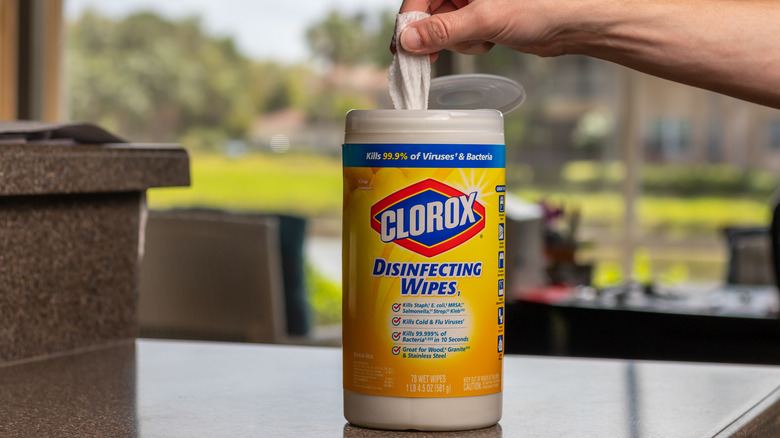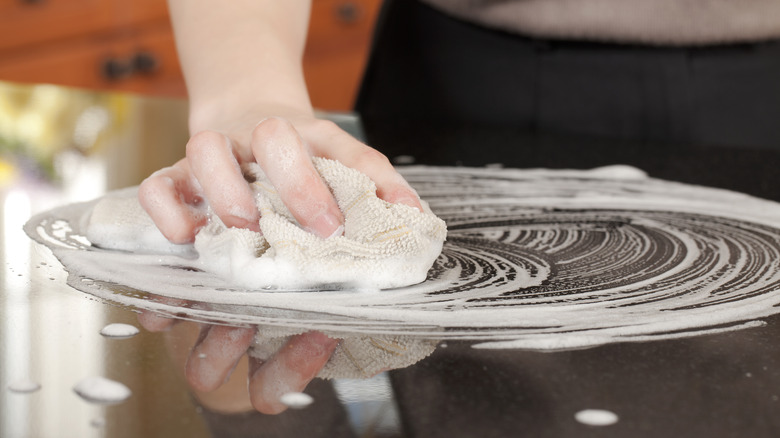Clorox Wipes And Your Granite Countertops Don't Mix - Here's Why
Disinfecting your countertops is an important part of cleaning your kitchen, but if you have granite countertops, you'll need to avoid Clorox wipes. Even though they are extremely convenient, both Clorox and Lysol wipes will damage your granite counters. Granite is a porous stone that will absorb liquid, so it is coated in a sealant to protect it. Certain cleaning products, including Clorox wipes and sprays, contain citric acid, which will break down the sealant. Continuously cleaning your counters this way can cause staining.
Cleaning solutions that contain bleach, ammonia, or vinegar or that are highly acidic should never be used on granite. Once these harsh cleansers cause the sealant to break down, your granite counters will absorb whatever liquid you spill and will not only stain the stone but can cause bacteria to grow. While granite counters can be resealed, it is best to avoid having to do this often to keep your countertops in good condition.
How to disinfect your granite countertops
Cleaning and disinfecting granite countertops are simple and easy, even without the help of Clorox wipes. For a regular clean, use a mixture of hot water and antibacterial dish soap. Using a gentle rag or sponge, wipe your counters with the cleaning solution, then clean up the soap with a damp cloth. When you're finished, make sure to dry your countertops with a clean tea towel.
When you need to disinfect your granite counters, isopropyl alcohol in concentrations of 70% or higher will work best. Since it is already diluted, you won't need to add water to it, and it is already strong enough to kill a variety of bacteria and germs. Simply pour some rubbing alcohol into a spray bottle, spritz it onto your counters, wipe them down with a damp cloth, and dry. This will keep your granite sparkling without the negative effects of harsh cleaners.
What to do if your granite's sealant breaks down
If you've used Clorox wipes, bleach, or vinegar to clean your granite in the past, there is an easy way to figure out if the seal has started to break down. Place a few drops of water onto your counters and let it sit for 10 minutes. If the water absorbs into the countertop and leaves a mark, then your granite will need to be resealed, but if the droplets are still intact, your granite's seal is still effective. Granite generally needs to be resealed every few years, but taking care of them will help the sealant last longer. While you can reseal them yourself, it may be more convenient to hire a professional.
The best way to keep your granite counters looking nice is to quickly wipe up any spills, use baking soda and water to get rid of stains as soon as you see them and clean your counters with cloths or sponges that aren't abrasive. As long as you stay away from cleaners like Clorox and follow other necessary precautions, your granite counters will stay beautiful.

